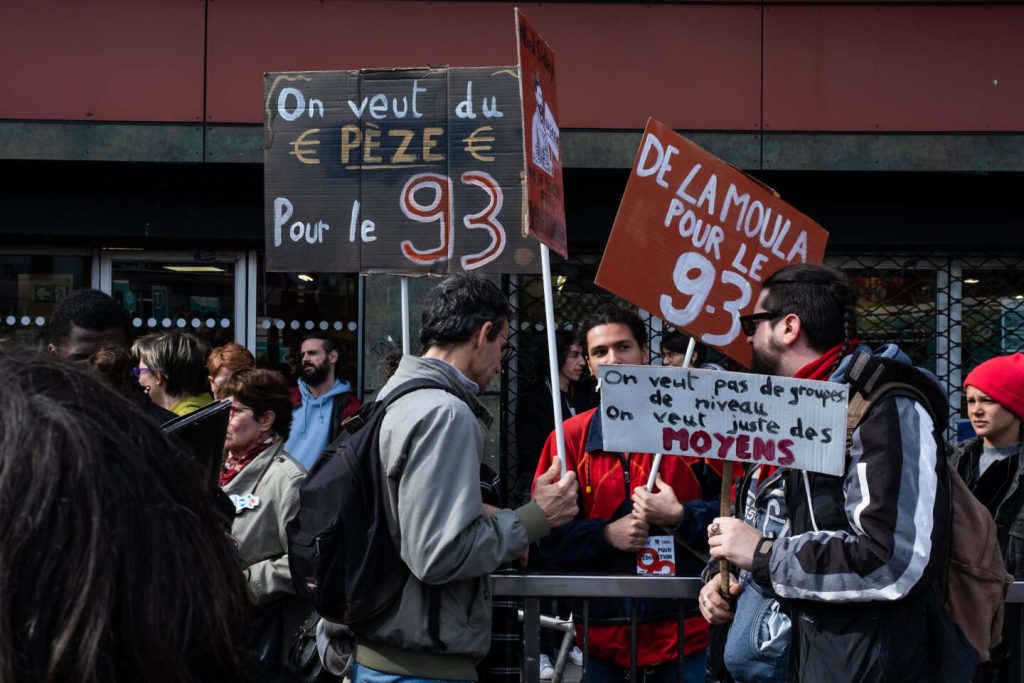The anger in Seine-Saint-Denis shows no signs of dissipating, with the movement that began on February 26th on track to become the longest in the department’s history. The teaching intersyndicate (FSU, CGT Educ’Action, SUD-Education, Federation of Education Workers) has once again called for a “no return to school” strike on April 22nd. Educators are being urged to strike again following the spring break in order to secure an “emergency plan” for the poorest department in metropolitan France. This ongoing protest includes strikes, demonstrations, assemblies, rallies, and campaigns like “deserted schools” organized by parents, who are deeply involved in the movement.
The new day of action comes after numerous strikes, demonstrations, assemblies, and rallies that have brought together teachers, families, and parents in Seine-Saint-Denis. This protest is in response to the government’s lack of substantive responses, according to the intersyndicate. Representatives of the movement were received at the Matignon on April 10th, where Prime Minister Gabriel Attal’s team assured them that the Ministry of National Education would make announcements. In order to address the challenges faced in this department, which magnify the difficulties of the national education system, the intersyndicate is asking for €358 million to hire several thousand staff including 5,200 teachers, 2,200 support staff for students with disabilities, and hundreds of school life positions.
Despite the ongoing protests, the meeting on April 15th at Rue de Grenelle with Minister of Education Nicole Belloubet did not meet expectations. The ministry highlighted the additional €200 million invested annually since 2022 for Seine-Saint-Denis and suggested some potential solutions. The ministry expressed a desire to better consider allophone students in resource allocation, discussed a potential increase in human resources in school life, and mentioned a reevaluation of needs in terms of medical and social staff. The ministry also mentioned the possibility of creating a reinforced team of staff for teacher replacements, as replacement rates in Seine-Saint-Denis, particularly at the primary level, are among the lowest in the country.
The ongoing efforts by teachers, students, and parents in Seine-Saint-Denis for an emergency plan in their schools have been met with vague promises and insufficient responses from the government. Despite the government’s announcements of additional funding and potential solutions, the movement is looking for concrete actions and long-term solutions to the challenges faced in the department. The protests have included a wide range of actions, from strikes to rallies to deserted school campaigns, all aimed at drawing attention to the urgent needs of the education system in Seine-Saint-Denis, the poorest department in metropolitan France.
The struggle in Seine-Saint-Denis reflects broader issues within the education system in France, where disparities and challenges in resource allocation and staffing are starkly highlighted. The demands from educators, students, and parents in Seine-Saint-Denis for an emergency plan and increased resources are emblematic of the larger problems facing education in the country. As the protests continue and negotiations with the government proceed, the focus remains on finding sustainable solutions to address the urgent needs of schools in Seine-Saint-Denis and to improve educational opportunities for all students in the department.


